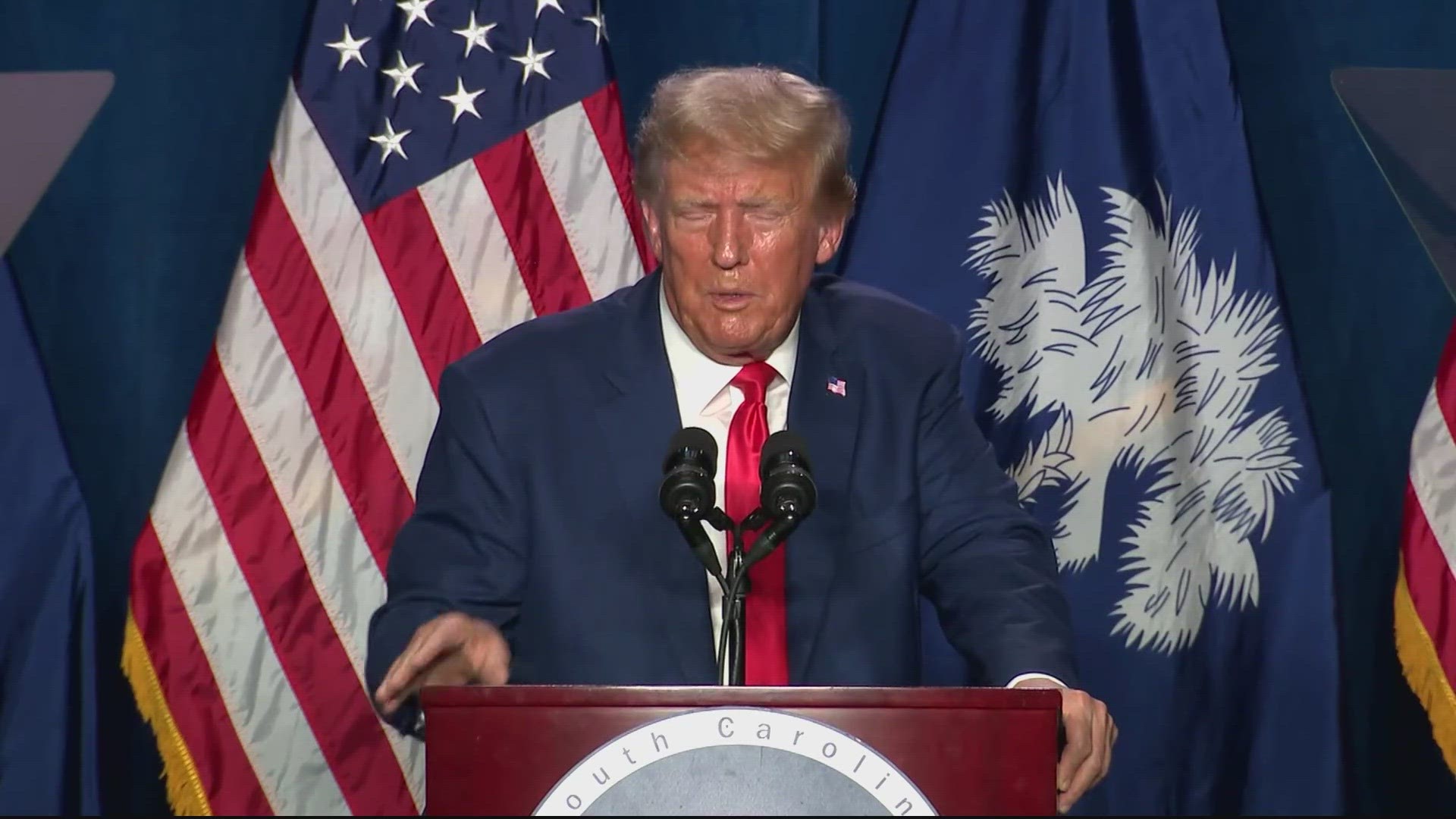WASHINGTON — The Justice Department says former President Donald Trump’s trial on election fraud charges should begin first thing next year – a schedule Trump’s attorneys are unlikely to agree with.
In a filing Friday, Assistant U.S. Attorney Molly Gaston asked U.S. District Judge Tanya S. Chutkan to set Trump’s trial in D.C. to begin Jan. 2, 2024. Gaston said the government’s case against the former president should take “no longer than four to six weeks.”
The DOJ’s proposed schedule would give Trump and his attorneys approximately five months to review what is expected to be voluminous evidence in the case, as well as subpoena and depose any witnesses they seek to call at trial. Under the proposal, jury selection would occur in December prior to winter holidays.
The government’s proposed schedule runs into a number of immediate conflicts in Trump’s complicated political and legal schedule – not the least of which is the beginning of a civil trial in writer E. Jean Carroll’s defamation suit against Trump. In May, a civil jury found Trump liable for sexual abuse for assaulting Carroll in a Manhattan department store in 1996 and awarded her $5 million in damages. Earlier this week, a federal judge tossed out Trump’s countersuit against Carroll.
An early January trial date would also conflict with the Iowa Republican Caucuses on Jan. 15 – a critical event for any Republican hoping to clench the party’s nomination for president. Public polling has consistently shown Trump as the frontrunner for a third consecutive nomination by the Republican Party.
ALSO READ | Twitter held in contempt, fined $350K for not turning over Trump account into by deadline
Trump himself has shown no desire to rush any of his pending cases to trial. He has repeatedly suggested the timing of the indictments was chosen to impact his political campaign. Attorneys in both his federal cases have stressed to judges they need time to review the massive amount of discovery provided by the government. During Trump’s initial appearance in federal court in D.C. last week, his attorney John Lauro said they didn’t see any way the trial could commence within the timeframe of the Speedy Trial Act, or 70 days from the date of indictment.
“For the government to suggest this trial could be tried within the timeframe of the Speedy Trial Act is somewhat absurd, I think, given the scope of discovery,” Lauro told Magistrate Judge Moxila Upadhyaya last week.
Appearing to anticipate a defense request to push the trial date back, Gaston’s motion noted the Speedy Trial Act also preserves the public’s rights. She also noted that, in multiple television interviews, Trump’s attorneys have already discussed which motions they plan to file – and that Trump’s attorneys have so far declined to accept evidence the government has offered to provide them.
“During the initial appearance hearing on August 3, defense counsel argued that a principal reason for delaying trial in this matter is the defendant’s need to review discovery,” Gaston wrote. “It is perplexing, then, that the defense has refused to accept the discovery that the Government has ready, even on an interim basis under the Government’s proposed protective order while the parties litigate the ultimate protective order in this case.”
A hearing to discuss that protective order was scheduled for Friday morning before Chutkan. Trump has also said he may seek recusal of Chutkan, who was nominated to the federal bench by former President Barack Obama in 2014, as well as a change of venue out of D.C. As of Thursday afternoon, neither motion had been filed.

